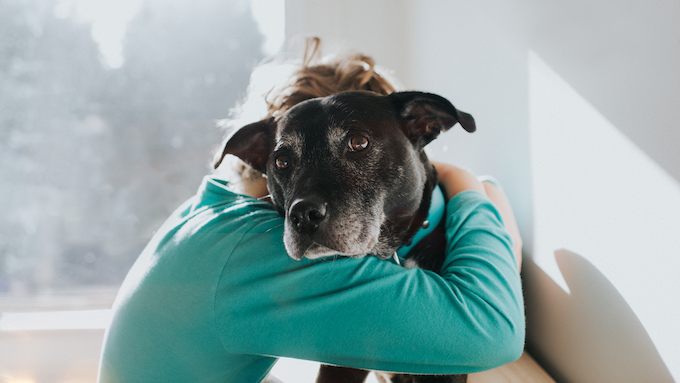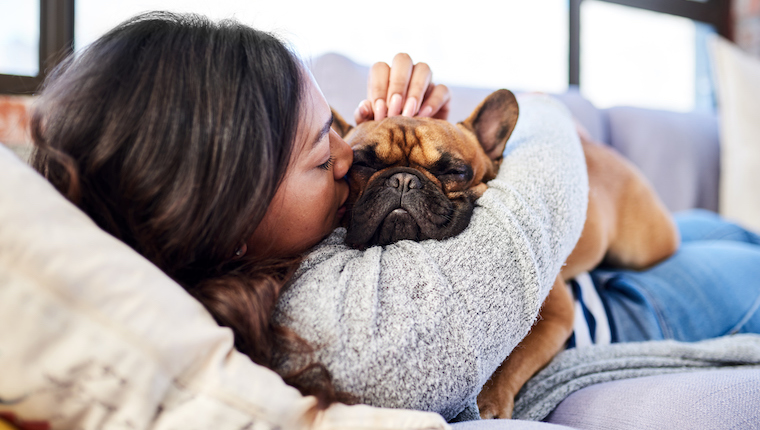
Many consider dogs a part of the family, but some bonds are stronger than others. According to a new study, pet parents with insecure attachment style are more likely to forge robust relationships with four-legged friends.
How Dogs Can Affect Pet Parents’ Mental Health
There’s ample evidence that animals can do wonders for a person’s emotional and physical health. But research on how being a pet parent affects mental wellness has produced varied results. Some studies have found it decreases loneliness, stress, and depression. But others have shown people with stronger attachments to their pets were more likely to have less social support and more symptoms of loneliness or emotional distress. This discrepancy prompted a group of German researchers to investigate further.
In the study published in BMC Psychiatry, researchers examined the link between interpersonal attachment styles, relationships with pets, and mental health. To do so, they surveyed 610 German dog parents, primarily women. The respondents provided data including their demographics, relationship with their pets, interpersonal attachment styles, and mental health status.
The researchers found people with emotional challenges, including psychiatric disorders, were more likely to have strong emotional bonds with their dogs. The study authors posit that’s because people with such conditions are more likely to have insecure attachment styles.
Most people develop a secure or insecure attachment pattern in childhood, depending on their environment. There are three types of insecure attachment: avoidant, ambivalent, and disorganized, each of which has distinct characteristics. Generally, insecure attachment is characterized by anxiety, fear, uncertainty, or avoidance.
How Attachment Styles Could Affect Pet Relationships
Researchers found people with stronger attachments to their dogs had more symptoms of mental disorders and distress. They were also less comfortable depending on and trusting others and feared rejection and being unloved.
According to the study authors, people’s stronger emotional bond with pets might reflect a “compensatory attachment strategy” to make up for the lack of secure interpersonal bonds during childhood. This makes sense, they added, because people might consider pets less threatening and more dependable than other people.
Because the study is correlational, it can’t establish a cause-and-effect. There were also limitations, including the fact most respondents were women. The authors say more research is needed to further examine the link between interpersonal relationships, person-pet relationships, and mental health.









